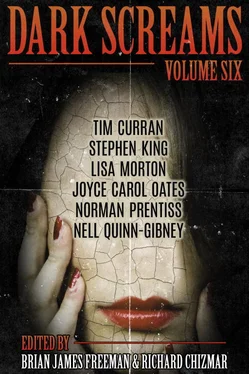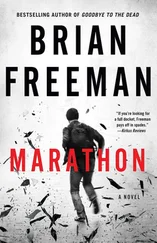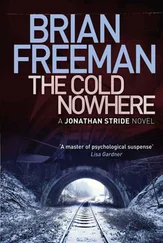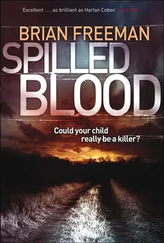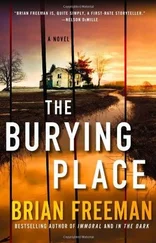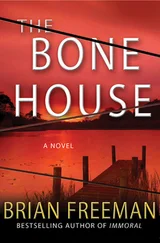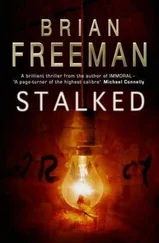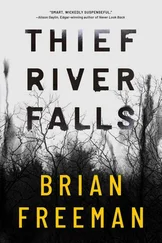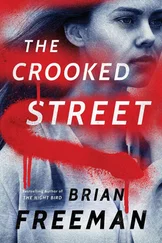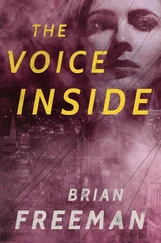Clow uncorked a fresh bottle of gin and had some trouble doing so, being that he could barely stand by that point. “Oi, have you noticed, Mickey, that there’s a certain unpleasant odor in me digs down here? Might be time to move some of this old stock… beginning to get a bit gamy.”
“That it is.”
The atmosphere down there was moist and steaming. The walls were sweating gray water from the sewers; fungi and mold grew in great spreading patches. The air was vaporous and simmering with a rank dampness and the black stink of decay. Many of the cadavers wore cauls of mildew over their faces. All of which made Clow think about disposing of them in the river. No point in trying to bury them beneath the dirt floor—there were already dozens and dozens of bodies interred there. The month before, Kierney and he had tried to squeeze in a few more, but not four inches down, their spades had penetrated into the spongy, putrescent remains of wormy corpses and the stink had been all but unbearable. And during one particularly hot week just last summer, after burying no less than twenty-five bodies beneath the floor that could not be moved quick enough… said bodies had bloated with gas and begun to rise up out of the dirt. Arms and legs and heads bursting through the soil. An ugly business it had been spearing them with pikes to let out the gas.
In his chair near the shelves, his head framed by rows of shadow-riven skulls grinning and grinning at some secret joke, Kierney said, “And what of this madness with Johnny Sherily? Them things he says give me a bad turn, they do.”
Clow shook his head, seeing four Kierneys. He made to take another sip of gin and spilled the cup, the contents running off the table of bones and onto his crotch. “Madness, is all. He was a fine man, was Johnny Sherily, but he swallows enough to give the Temperance Society the cold fits. Gone soft, me thinks.”
“Could be, could be. But at that North Grounds… I’ve heard them sounds more than once.”
“Rats, is all. Them knows where the good eats is to be had, don’t they? Me uncle Roy once told me he was snatching a fresh one at the Ramshorn boneyard… a clear and fine night it was, says he… and he pulls up the box and beneath? Aye, burrows, rat holes. Little bastards were trying to chew their way in from below. Smart that. Out at the North Grounds? Aye, the same thing—”
“But them sounds…”
“Rats, rats, and rats. And mayhap old Johnny is running a sweet and randy game, I wager. Scaring off them fools at the Sign of the Boar, saving the North Grounds for himself. Be just like that old bastard. Sneaky one, him. Do you think?”
But Kierney, slumped in his chair, was snoring.
“Aye, one day soon, Mr. Kierney, we’ll have pause to do a spot of work at the North Grounds, then we’ll meet Johnny Sherily’s skull-devil. Yes, we’ll show him where the blade falls. Certain we will, oh, yes…”
5
They had a rare run of luck not three days later. Over at the workhouse on the east side of the city no less than fifteen had died in the span of a few days. An outbreak of cholera had done them in, the price to be paid for using and reusing the same contaminated water. Kierney wasn’t taken with the idea of fishing those corpses. To his way of thinking, cholera was an infectious, communicable disease. But Clow assured him that there was nothing to worry on, that cholera died with its owner and such was a medically proven fact. The dead had been placed in a single communal pauper’s grave, so they could make short work of it.
So, in the dead of night, they descended on St. Bartholomew’s Churchyard and got down to work. Limned by thin moonlight, spades sinking into the moist, fresh earth, they went at it. All around them, graves and stones and shadows slinking. The sound of crickets and peepers calling out.
“Least it’s not raining,” Clow said and grunted, tossing black shovelfuls of earth onto the canvas sheet. “Don’t think I could take another night of that creeping damp. Got right inside me, it did.”
“Aye, disgusting, it was. Ground still pissing like a sponge. Heavy, this earth is.”
The city had been flooded and the streets were mud. A mud swimming with the filth of an overcrowded population. Not just water and dirt, but seepage from backed-up sewers, the combined waste of emptied privy pails, offal from the slaughteryards, and polluted runoff from the river. The mud had become a seething organic brew of feces, urine, blood, and contaminated groundwater. A ripe and heady breeding ground for contagious disease. Epidemics of typhus, cholera, and scarlet fever had filled the graveyards. Some were so full that old graves were opened, the disinterred dead and their attendant coffins were burned in huge pyres, nauseating clouds of black stink rising above the city. Hundreds of cadavers were packed into aboveground vaults where they were rotting en masse, the noxious drainage of which was further polluting the soil and ultimately the water drawn from hand pumps. The stench created was hideous, lying over certain dim, dire quarters of the city in a fetid shroud.
This was the city and the times Clow and Kierney moved through. A seething, crowded hell with no conception of sanitation. An age of child labor and epidemics, of rivers congested with sewage and carrion, of streets packed with refuse, the living and quite often the dead. A time when rancid meat was sold openly, as was the flesh of diseased cattle. Medicine was slowly making progress via the anatomists, but the old ways and grim traditions hung heavy. Prescriptions from doctors still called for spiderwebs, human blood, frogs, insects, and very often the excrement of horses and pigs. With the old practitioners, there was a fine line between healing and witchery, superstition and cure.
“Hit something, I have,” Kierney said, withdrawing the blade of his shovel, grimacing in the flickering lamplight. “Oi, and it’s no box, either… it’s, well, let’s have a look, shall we?”
On his hands and knees, Clow holding the lantern close, Kierney began to dig with his fingers, uncovering a shroud and then a pale hand jutting from it. They got to work then until they had uncovered not fifteen bodies, but quite near thirty wrapped up in rotting sheets gone a leaden gray.
“Horrible is what it is,” Clow said, sorting through them. “Not so much as a coffin in the lot. Just wrapped in winding cloths and dumped in like so much waste. That’s life on the spike, friend Mickey.”
Kierney shook his head, dragging a man out by the ankle. “No respect for the dead, that’s what.”
One by one, they towed the bodies over to the wagon until they had a respectable pile heaped like cordwood. A teetering jumble of limbs and heads dangling from scrawny necks. Without further ado, dawn less than an hour away now, they began tossing them up into the wagon, taking care not to damage them, stacking them like bricks. Generally, the fat ones would go on the bottom to support the others, but there were no fat ones from the workhouse, particularly after cholera had run its course.
When they were done, they fit the sheets snug about their cargo, tucking them in like children but without so much as a story, song, or good-night kiss.
“Now, that was a bit of work,” Kierney said. “Might as well be doing honest labor if I have to work like this. Me poor back. Would ye be kind enough to rub it for me, Mr. Clow?”
Clow spit tobacco juice at him. “I would not, Mr. Kierney, nor will I rub anything else that ails ye.”
“You’re a kind man, a kind man. I always say so.”
Kierney was picking soil from under his fingernails with a penknife. His darting eyes were black marbles peering from a sea of fat. “Been doing some thinking on your life, Samuel Clow, and have decided that your problem is a lack of formal education, it is.”
Читать дальше
